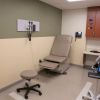The Essential Role of a Cardiologist in Preventing Heart Disease
- The Importance of a Cardiologist in Heart Disease Prevention
- Understanding the Risk Factors of Heart Disease
- Prevention Strategies Employed by Cardiologists
- Personalized Care and Its Role in Prevention
- Real-Life Example: Cardiologists Saving Lives
The Importance of a Cardiologist in Heart Disease Prevention
Heart disease continues to be one of the leading causes of death worldwide, but a cardiologist's role is crucial in preventing and managing this growing epidemic. Cardiologists are specialized in diagnosing, treating, and preventing heart conditions. Their expertise is vital in identifying early warning signs and providing patients with the necessary tools to prevent heart disease. From routine check-ups to complex interventions, a cardiologist's contribution is key to improving overall heart health.
Understanding the Risk Factors of Heart Disease
Before diving into prevention strategies, it's essential to understand the risk factors associated with heart disease. These include high blood pressure, high cholesterol levels, smoking, obesity, and family history. Cardiologists work with patients to assess these risks, offer advice on lifestyle changes, and guide them through effective interventions. It's not just about treating symptoms but managing risk factors proactively to ensure long-term heart health.
Prevention Strategies Employed by Cardiologists
Cardiologists employ a range of prevention strategies that go beyond medical treatment. These strategies include educating patients about healthy eating, exercise, stress management, and medication when necessary. Regular screening for high blood pressure, diabetes, and cholesterol is also part of the prevention toolkit. Cardiologists emphasize the importance of early detection and intervention to avoid the progression of heart disease.
Personalized Care and Its Role in Prevention
Each patient is unique, and cardiologists provide personalized care plans based on individual health conditions and risk factors. Whether it's through tailored diet plans, exercise regimens, or customized medications, personalized care ensures that the approach is as effective as possible. Cardiologists take the time to understand their patients' lifestyles, providing them with a more holistic approach to prevention.
Real-Life Example: Cardiologists Saving Lives
A great example of a cardiologist's role in heart disease prevention comes from a case where a cardiologist identified early signs of heart disease in a patient with no prior symptoms. Through proactive intervention, the cardiologist helped the patient make necessary lifestyle changes, which significantly reduced the risk of a heart attack. This story demonstrates how a cardiologist's expertise can literally save lives by preventing heart disease before it develops.
Take Action: Protect Your Heart Health Today
Preventing heart disease is an ongoing effort, and working with a cardiologist can make a significant difference in your heart health. If you're concerned about your heart health or have risk factors for heart disease, scheduling a consultation with a cardiologist is the best step you can take. Don't wait for symptoms to appear – take action now to ensure a healthier future.





















